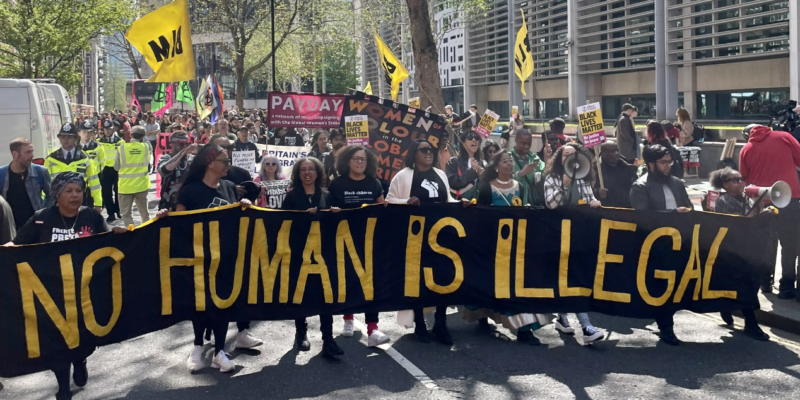The adoption of soft or harsh migration policies has a real impact on the lives of migrants. In fact, depending on the measures taken, they are either excluded and abandoned as opposed to included and integrated into the social tissue of member states. What is certain – as researchers Sinem Yilmaz and Giacomo Solano emphasise in their research Do migration policies work? – is that the securitarian policies adopted by EU countries, such as systematic border rejections, have failed to produce the deterrent effect that was expected, and still they violate migrants’ fundamental rights.
In fact, as Yilmaz and Solano explain, over the past decades, various experts on migration have argued that a gap exists between the goals of restrictive migration policies and the results actually achieved. The root causes of migration range from labour market imbalances and inequality in wealth redistribution to conflicts within the countries of origin, “factors on which migration policies have a limited impact”. Moreover, according to the research, although it is true that security policies do have a considerably negative impact – especially on access to asylum, family reunification, and visa access – these restrictions have served to fuelling irregular flows, pushing people towards alternative and risky migration channels. “Of particular interest”, the researchers write, “is the fact that more restrictive policies and border security tend to produce an increase in the number of undocumented migrants, which is exactly what these policies are supposed to curb”.
Another element analysed by the researchers is selectivity: in fact, the EU Blue Card scheme is one of the few legal routes that migrants could take to arrive legally. However, one may argue that the Blue Card is based on a strict selection process in which only those who are considered to be “highly qualified” can participate – in the case of Italy, for example, the Blue Card can only be acquired by people who work as executives, legislators, entrepreneurs, science and engineering professionals. In fact, “although states, from a theoretical point of view, have the right to take into account skills and qualifications when selecting some migrants over others, skill-selection policies should not bypass the duty of states to welcome other migrants seeking protection or better living conditions”. Indeed, the risk, as the researchers explain, is to produce the same effects – and side effects – as restrictive policies.
Compared to securitarian positions, the promotion of policies aimed at social inclusion is more effective, especially if equal rights are guaranteed and targeted integration policies are implemented. Among these, the researchers include the obtaining of citizenship and the implementation of social policies aimed at bridging inequalities: “In the socio-economic sector, within the framework of inclusive policies, migrants are more likely to improve their language and professional skills, and consequently have the possibility of obtaining better jobs […]”. Further to this: “[…] inclusive policies not only increase positive attitudes in interactions between native citizens and migrants but also create a general sense of belonging, trust and well-being”. Another key element is the integration of anti-discrimination policies: integration policies “must be applied to all different areas […] in order to ensure access to rights, opportunities, and services. The policy framework is crucial to address and remove institutional barriers and to meet the challenges that migrants encounter in the host country, such as discrimination, language barriers, and health problems”.
Ultimately, the attitude governments have towards migrants strongly affects the way these people and the citizens of the host country interact with and view each other. As Yilmaz and Solano write, “a country’s general approach to migration policies is strongly associated with the public’s attitude towards migrants[…]” (this is also true for how the media treat the topic of migration, as we wrote in this article). Rather than restrictive policies, which create a vicious circle of exclusion that reinforces fear and divisions, inclusive policies must therefore be adopted, in order to create a virtuous circle of openness and interaction between subjects.
This study was carried out as part of Humming Bird. Humming Bird is a Horizon 2020 project that aims to improve the mapping and understanding of evolving migration flows.
Cover photo via Twitter/Global Justice UK









